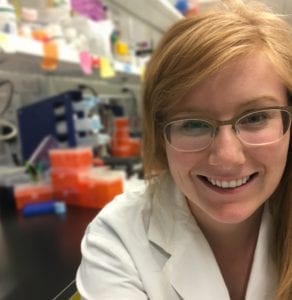
Trainee Author: Daria Wojtal
PhD Candidate
Hospital for Sick Children
University of Toronto
This paper presents promising future methods for using CRISPR/Cas technology to correct genetic mutations and potentially improve patient outcomes. The authors used CRISPR/Cas in several unique ways to achieve their desired effects, highlighting the versatility of this technique and its ability to be applied to multiple mutation types or genetic states. Using cells derived from human patients, they were able to correct mutations in several well-characterized genetic disorders, including Duchenne Muscular Dystrophy, Achondroplasia, and MECP2-duplication syndrome.
They also provide results of their molecular analyses to show that they have, in fact, succeeded in genetically and molecularly ameliorating the current cellular state. The work described in this article represents the first wave of experimentation that is absolutely necessary to evaluate the safety and efficacy of CRISPR/Cas technology as a human genome editing tool.
ASHG: Could you describe your research for us?
Ms. Wojtal: I am looking at how we can apply the CRISPR/Cas9 system to treat monogenic disorders-specifically editing pathogenic mutations such as duplications, as well as modulating disease modifier genes. My fascination with the CRISPR/Cas9 tool is that it is so versatile.
ASHG: What are your career goals?
Ms. Wojtal: I am interested in how CRISPR/Cas9-mediated therapies will fare in clinical trials. This field is something I would like to continue being involved in, particularly in the capacity of public health and regulation for these genetic trials.
ASHG: Why did you choose genetics as your field of study?
Ms. Wojtal: Genetics has been a topic that I have always been exposed to growing up, as I have three cousins suffering from Vanishing White Matter Leukodystrophy. This is a rare genetic disorder for which there is no cure and very limited supportive care. I have always felt a sense of helplessness as over the years I saw their pain and suffering, but there was no curative treatment available. Unfortunately, that is the case for most genetics disorders.
When I was about to start my graduate degree, applications of the CRISPR-Cas9 system were just beginning to be published. So, when one of the labs that I was interested in joining told me that they were looking for someone to establish a project involving CRISPR/Cas9- mediated therapies, I knew that this was for me.
ASHG: Describe yourself in three words.
Ms. Wojtal: Attentive, Dedicated, Visionary.
The Trainee Paper Spotlight highlights outstanding papers written by trainee members of ASHG. Submit your science to be featured, and join the ASHG Trainee Forum to keep up with new ones.
